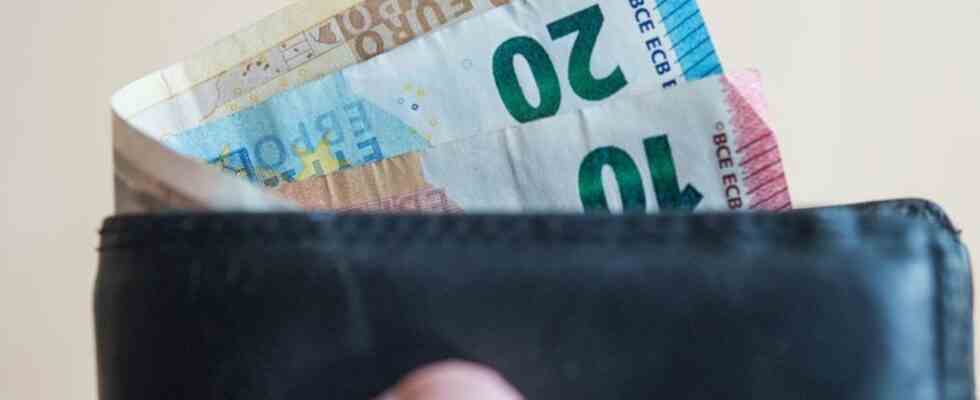Prices
Currency watchdog: Inflation should fall in the medium term
Does Europe have to get used to higher prices? Photo: picture alliance / Lino Mirgeler/dpa
© dpa-infocom GmbH
Europe’s currency watchdogs are giving consumers hope: In their opinion, the comparatively high inflation will not last. But there is also disagreement in the Governing Council of the European Central Bank.
Europe’s currency watchdogs continue to anticipate a decline in the record high inflation rates in the medium term.
The current situation is a supply shock, said the chief economist of the European Central Bank (ECB), Philip Lane, the US daily “Politico” in an interview published on Tuesday. “And for these reasons we would still argue (…) that most of this inflation will abate.”
That doesn’t necessarily mean that the high prices would recede, Lane said. “Europe may have to get used to higher prices.” But the momentum will decrease. “We believe that inflation will fall over the course of this year and will be much lower next year and the year after than this year.”
The head of the Austrian National Bank, Robert Holzmann, told the “Börsen-Zeitung” (Wednesday): “There are good arguments for the assumption that inflation will fall again in the medium term. Energy prices are likely to fall from the current peak, especially as high prices make investing in power generation more attractive – which should increase supply and lower prices.” However, it is important to remain vigilant.
Interest rates at record lows
Rising energy prices have been driving inflation for months. The war in Ukraine fuels this development. Inflation in the euro zone reached 5.9 percent in February, the highest level since the euro was introduced as a settlement currency in 1999.
The ECB, whose primary goal is stable prices with an inflation rate of two percent, is pushing ahead with the exit from its ultra-loose monetary policy in view of the persistently high inflation. The central bank announced that it would stop buying additional government and corporate bonds in the third quarter of 2022.
If interest rates are raised exactly after that, the central bank will leave it open. “The most important thing from our point of view is that we have created a flexible and optional monetary policy framework that is explicitly designed to react to any medium-term developments,” Lane said.
Holzmann, who has a say in the Governing Council’s monetary policy, is calling for two interest rate hikes and an end to negative interest rates this year – and warns that the ECB could otherwise fall behind in the fight against inflation. “An increase in the deposit rate to zero percent by the end of the year would be important for monetary policy because it increases optionality.” This deposit rate is currently minus 0.5 percent. The key interest rate in the euro zone is at a record low of zero percent.

